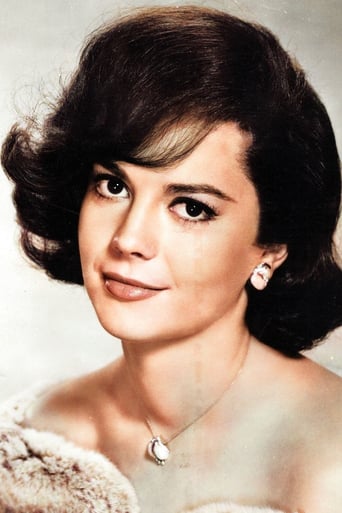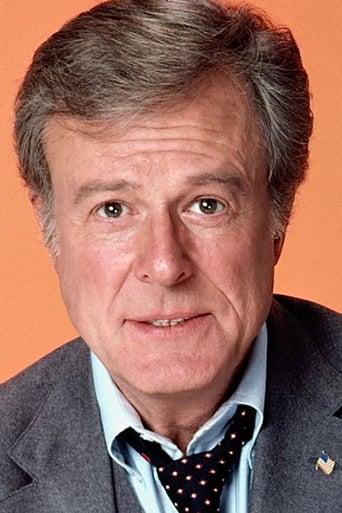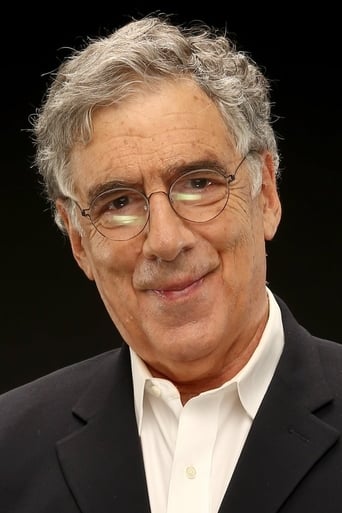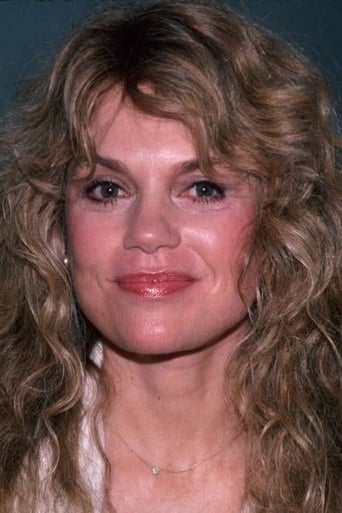Joseph Kearny
Paul Mazursky's directorial debut ranks with his best. Though B&C&T&A lacks atmosphere and could use tighter editing, it remains one of the 60s top comedies and one of that decades best films. Far better than the insipid comedies Hollywood churned out with Jack Lemon, Peter Sellars, Tony Curtis and Doris Day. In some respects a period piece, B&C&T&A is still funny and pointed today. The 4 leads are believable as couples and friends and Wood, Cannon, Gould and Culp have rarely been better. Gould and Cannon make their long scenes really work and Cannon is a standout especially in a scene with her analyst. Wood is far more nuanced and relaxed than she was in her previous comedies: Penelope, The Great Race, Sex and the Single Girl. The use of improvisation and long uninterrupted scenes works as well here as in any Cassavettes' film and the final scene is inspired by Fellini.
NORDIC-2
After a weekend of emotionally charged encounter sessions at an Esalen- like retreat known as "The Institute," L.A.-based documentary filmmaker Bob Sanders (Robert Culp) and his wife Carol (Natalie Wood) become zealous acolytes of the late-Sixties, hippie-inspired cult of expressive individualism: an apolitical ideology of bourgeois hedonism that sanctifies joyful spontaneity, uninhibited candor, and guilt-free (extramarital) sex as the sine qua non of a fulfilling life. Adhering to the new openness, Bob confesses to Carol that he has had a "just physical" one-night stand with a 20-year-old blonde while on a business trip to San Francisco. Though seemingly sanguine about the news, Carol proceeds to have her own dalliance with Horst (Horst Ebersberg), her handsome tennis instructor, but is caught in the act when Bob comes home early from a trip to New York. After a bout with old-fashioned jealousy, Bob seems able to reconcile himself to Carol's infidelity. As for Bob and Carol's best friends—Ted (Elliott Gould) and Alice (Dyan Cannon)—this New Age ethos strikes them as suspiciously naive and self-indulgent until Ted succumbs to his own opportunity to cheat while on a trip to Miami. When he confesses his indiscretion to Alice while the foursome is on vacation in Las Vegas, Alice calls everyone's bluff by stripping down to her underwear and suggesting the two couples have a spouse-swapping orgy in their hotel suite before going to a Tony Bennett concert! Supposedly dutiful swingers all, the four climb into bed and commence foreplay with each other's spouse but come to find that they cannot go through with it; evidently, primal taboos surrounding conjugal intimacy are too strong to overcome. In the somewhat surreal denouement, a chastened Bob and Carol and Ted and Alice march out of their casino hotel, followed by a long string of other hand holding couples and promenade in the parking lot to the lilting strains of Jackie DeShannon singing Bert Bacharach's "What the World Needs Now is Love." The ending, and the movie as a whole, is tonally ambiguous. Are viewers meant to applaud or sneer at the triumph of conventional morality over revolutionary sexual-emotional mores? Probably more the former but the film still manages to raise questions about status quo hypocrisy that it cannot put to bed peacefully. Made for a mere $2 million, 'Bob & Carol & Ted & Alice' was a smash hit, earning $30 million at the box office. A watered-down TV series based on the film lasted only half a season in the autumn of 1973. VHS (1996) and DVD (2004).
tieman64
"Under the auspices of 'intimacy', we come to matrimony looking for everything that has so obviously deserted contemporary social relations: warmth, simplicity, truth, a life without theatre or spectator. But once the romantic high has passed, 'intimacy' strips itself bare: it is itself a social invention, it speaks the language of glamour magazines." - The Invisible Committee Ah, the sixties, the era when a director could make a film about sex orgies and have it feel like high art. Release a film like "Bob and Carol and Ted and Alice" today and it would feel tawdry and tasteless. Release it in the 1960s, though, and it'll fizzle with a certain authenticity.Directed by Paul Mazursky, who famously starred in Stanley Kubrick's "Fear and Desire", "Bob and Carol and Ted and Alice" stars Robert Culp and the always beautiful Natalie Wood as Bob and Carol, a married couple who find themselves at a New Age retreat. Here they learn to "be honest", "permissive" and "embrace indiscriminate sex". Our duo initially find this ethos liberating, embarking on a series of sexual encounters (with the always lovable Elliott Gould), until they realise that "maybe sex shouldn't be reduced to purely physical terms". The film ends with our heroes turning their backs to polygamy and orgies.Though Mazursky's film aptly sums up the confusion of the Eisenhower generation, who found themselves faced with the temptations of counterculture movements, many critics have accused it playing things too safe. The film's ending, in which Mazursky has "What the World Needs Now Is Love" croon over shots of walking couples, is typically read as a retreat to conservative values, heterosexual, monogamous intercourse and old fashioned appeals to authority and guilt.This kind of either/or battle has been going on forever. On one hand, for example, many argue that monogamous relationships and the institution of marriage perpetuate patriarchy, ownership and are rooted in capitalism (monogamy/marriage was partially constructed as a measure of power by patriarchal societies, so that men could ensure that their children were the rightful heirs to their property). In this regard, polyamory is seen as being liberating because it crushes certain ideas we have about ownership and the language we use around marriage and monogamy. Being in a non-monogamous situation, some argue, leads to sharing, greater honesty and allows people to be more autonomous.Another argument is that there is a relationship between war, aggression, and the control of sexuality, as many observers since the time of Freud have noted. Scholars such as Kinsey and Foucault also suspected that the more repressed a culture, the more violent and reactive it is. In contrast, when sexuality is unchallenged as part of the arc of life, there is less violence and more acceptance.Such "thought experiments" are common in science fiction literature. Ursula Le Guin's "The Left Hand of Darkness", for example, revolves around a race of aliens who are completely sexless. Because of their neutered state (and muted egos), they are not only entirely passive, but do not understand concepts such as "war" or even "progress". Indeed, their whole society has no drive to advance, innovate, renovate, conquer, or engage in games of dominance, class, acquisition, status, submission etc. Even their concept of time suggests stasis; on their planet, the current year is always called "year 0", and past years are retroactively re-named or re-numbered as time goes by to take into account a perpetual "present".Ironically, those who oppose polyamory do so for the same reasons as those who support it. For some, having multiple sexual partners is an extension of capitalist hedonism; one's sense of loyalty and control is overridden by the ego, which ceaselessly commands one to "enjoy", to cave to desires and accumulate or possess multiple mates. As desire represents a lack that can not be satisfied, the lover finds itself trapped in a neurotic cycle of acquisition; a slave to desire. These critics see polyamory as a form of greed, hedonism and perpetual dissatisfaction. But this is a misrepresentation of polygyny. Polyamory and promiscuity are not, at least in theory, the same thing.Then there are other arguments. Both capitalism and polygyny increase the variance in the distribution of desired outcomes (more partners/objects/commodities per person) while lowering the mean (less people with partners/objects/commodities). The mean number of children per man is exactly the same under polygyny and monogamy, but the proportion of men who have children is much greater under monogamy than under polygyny. In other words, more men are reproductively successful under monogamy than under polygyny. Ie - capitalism and polygyny are systems designed to reward the winners and punish the losers.On yet another hand, some stress that polyamory is "natural", and that it is only external (outside biology) factors which led to humans becoming monogamous (a couple can better provide for a child than a single parent etc). So why not embrace nature and breed like bunnies? Why not have multiple parents working in tandem? To counter this, some say what's natural is always contingent, so why not strive for a better, monogamous ideal, rather than indulging in rampant desires? To such people, monogamy is subversive in light of permissive norms. At which point those who advocate polyamory go to lengths to stress that it has nothing to do with sex or bedding many different people. If love is narcissism, and "true love" is excessive empathy, then why limit your 'excessive empathy' to just one person? Why not love everyone? Then, of course, the monogamous camp plays their trump card. If it's not about sexual intimacy, why not remove sex from polygyny altogether? At which point you're back with religion, and a kind of unconditional, Christ-like love; polyamory as the ultimate sexual Jesus.8.5/10 – Worth one viewing.
wes-connors
In Southern California, documentary filmmaker Robert Culp (as Bob Sanders) and his beautiful wife Natalie Wood (as Carol) participate in group sensitivity for research. They meditate and get in touch with inner feelings; they stare at each other, hit pillows and cry. The experience enlightens our co-stars, and Mr. Culp later reveals he had a one night stand in San Francisco. This leads Ms. Wood to consider hitting the rackets with a tennis instructor. Wood and Culp share sexual feelings with each other and best friends Elliott Gould and Dyan Cannon (as Ted and Alice Henderson) come into the bed...Though considered by many to be very 1960s, sessions like the one in the opening are used today to "bond" workers in new employment situations; however, the cigarette smokers and topless women are not in evidence. The swinging sixties weren't easy to capture in films, as most of the movies trying to reflect the times seem silly; moreover, they usually presented through the eyes of personnel older than hippie age. "Bob & Carol & Ted & Alice" is really only a hesitating tease, and consequently works better than some contemporary fare. Most obviously, Natalie Wood is sexy and stupendous.******* Bob & Carol & Ted & Alice (9/17/69) Paul Mazursky ~ Natalie Wood, Robert Culp, Elliott Gould, Dyan Cannon





